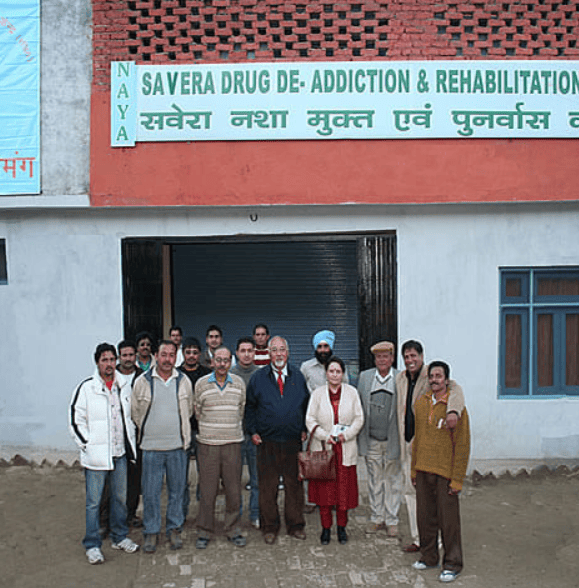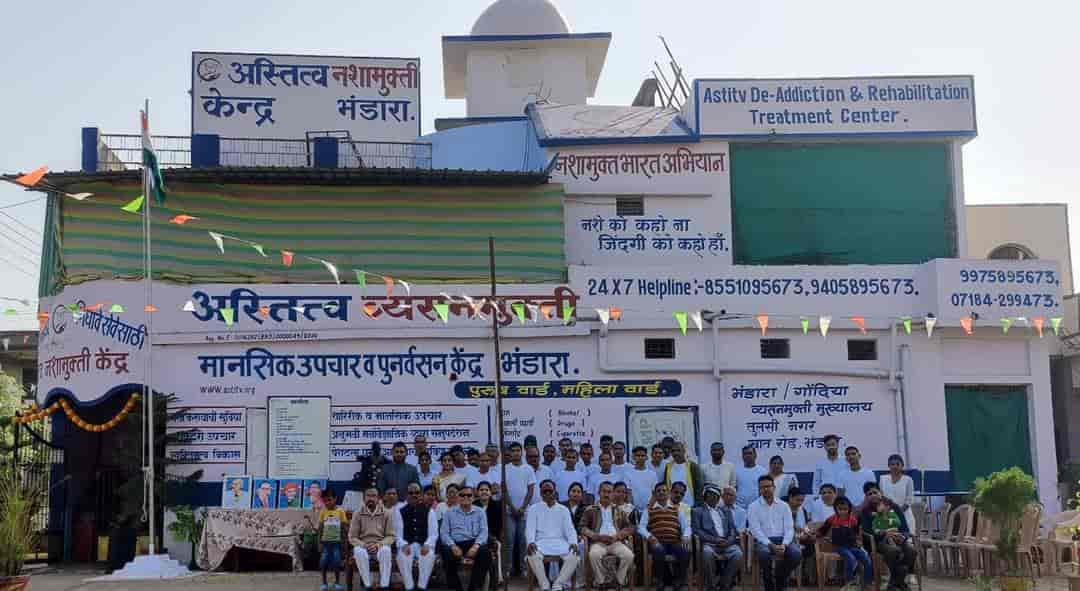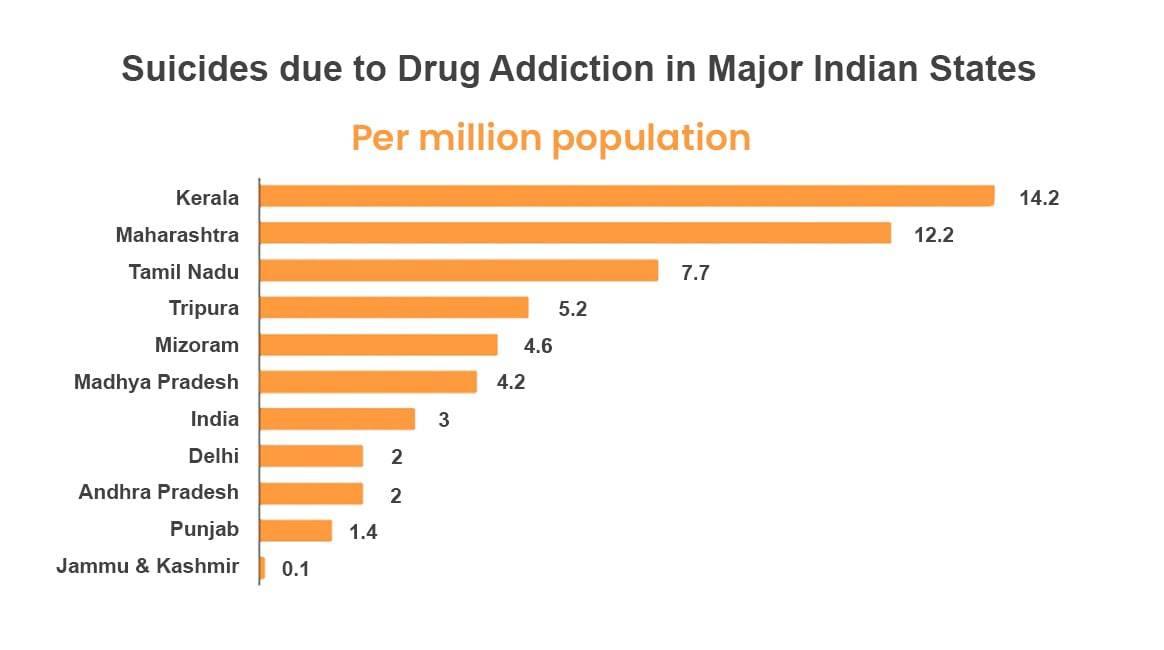Addiction has become a threat in India, be it an addiction to alcohol, gambling, substances, drugs, or even the Internet. Millions of people battle alcohol and drug addiction, with other addictions and mental health problems, which puts a burden on families, individuals, and society as a whole. The causes of this increase are complex. Lack of awareness, economic concerns, and social pressures all play a part. Moreover, the shame associated with addiction frequently keeps people from getting treatment.

According to a 2018 nationwide survey, over 5.7 crore individuals suffer from harmful or dependent alcohol consumption. One in three Indian alcohol users requires assistance with alcohol-related issues. Statistics from another survey showed that India’s alcohol consumption will increase from approximately five billion liters in 2020 to approximately 6.21 billion liters by 2024.
Now, Alcohol addiction is not the only issue; addiction to substances like cannabis, opioids, and sedatives is also a threat to the Indian population. The most often-used opioid in the country is heroin, which is followed by pharmaceutical opioids and opium. It is estimated that 0.55% of Indians require assistance for opioid use disorders. According to a report published in The Hindu, the highest prevalence of opioid use disorders in India is observed in the eastern parts of the country.
Also, if we talk about cannabis, roughly 72 lakh people in India require assistance with their cannabis usage issues. The states of Uttar Pradesh, Punjab, Sikkim, Chhattisgarh, and Delhi have greater rates of cannabis consumption than the national average.
The Current Landscape of De-Addiction Centres in India
This excessive dependence on substances and alcohol abuse negatively influences safety, productivity, and health while tearing away the fabric of communities. India requires a strong rehabilitation facility network to handle this challenge. These facilities have to put patients’ needs first, provide evidence-based care, and give priority to their well-being. According to a World Health Organization (WHO) report published in the journal The Lancet, India is one of the five nations with the highest proportion of citizens in need of rehabilitation services.
Several NGOs and rehab centres in India are already functioning. According to lists released by the MSJE and MoHFW, as of 2017, there were 398 Integrated Rehabilitation Centres for Addicts (IRCAs) and 212 Opioid Substitution Clinics in India. In addition, individual states’ district hospitals and medical institutes offer de-addiction therapies. In addition, there are more private de-addiction and rehab centre in India than public ones across the nation.

So, the question arises: Why does India need more rehab facilities? The existing facilities do not provide an appropriate level of treatment. There are some serious concerns regarding these treatment facilities, as several reports suggest the cases of physical and psychological abuse in these centres, illegal establishments, lack of trained staff, overcrowding, and even detaining people without consent. This situation demands more rehab facilities that provide quality care and fulfill all legal requirements.
Opening A Rehab Centre In India: Critical Consideration
Opening a rehab centre in India is a matter of responsibility. One needs to keep certain things in mind before taking any step further. There are some legal formalities that need to be done to open a rehab centre in India. Also, taking such a step requires a lot of planning, such as the target population, location, and financial planning. Consider these aspects if you are planning to open a rehab facility in India:
1. Legal and Regulatory Framework:
Narcotics Control Bureau (NCB) and State Licenses: A current license from the NCB, the official body in charge of narcotics, is necessary to run a treatment facility. Furthermore, state-specific licenses from the Social Welfare or Health departments may be required as a recognized drug & alcohol rehabilitation centre in India that complies with national standards.
The 2017 Mental Healthcare Act (MHA): It is essential to consider the MHA 2017. This legislation protects the rights of those in need of mental health services, especially those who are dealing with drug and alcohol abuse. Learn about the provisions pertaining to patient confidentiality, treatment plans, and informed consent. Hence, opening a licensed rehab centre in India that ensures patient safety and evidence-based care has become more vital than ever.

2. Target Population and Treatment Philosophy:
Identifying Your Specialty: Will you serve a certain age range, kind of addiction (drugs, alcohol, or behavioral), co-occurring mental health conditions, or provide specialised treatment to a certain community? This will specify your marketing plans and treatment methodology. Identify your specialization early — will you focus on alcohol dependence, opioid addiction, or behavioural issues like gaming or Internet addiction? Determine whether you’ll offer inpatient addiction treatment in India (residential care) or outpatient services.
Philosophy of Treatment: Selecting your therapy guiding concepts is essential. Which strategy—a 12-step program-based model or a holistic one including therapies like yoga and meditation—will you choose? Look into various strategies and select the one that best fits your goals and areas of competence. This widespread dependency has led to increasing demand for drug & alcohol rehabilitation centres in India that offer evidence-based recovery programs.
3. Location and Facilities:
Urban vs. Rural Setting: While some customers find urban centers easier to access, rural settings might offer a more private and healing atmosphere. When making this decision, take your target audience and available resources into account. This law safeguards the rights of patients undergoing substance abuse treatment in India, ensuring privacy, informed consent, and ethical care.
Establishing a Safe Space: Physical surroundings are essential to healing. Make the investment to create a safe, cozy environment that supports healing and well-being. This includes creating living rooms, drug and alcohol addiction treatment areas, and outdoor locations that promote healing.

4. Financial Planning and Sustainability:
Funding Options: Consider a range of funding options, such as government grants, insurance company partnerships, and private investment. Having a variety of funding sources helps increase one’s financial stability. Launching an affordable rehab in India requires detailed budgeting.
Creating a Business Model: It’s imperative to create a sustainable business model. This entails striking a balance between patient affordability and the expense of delivering high-quality treatment. Consider investigating insurance partnerships or offering tiers of pricing based on the level of treatment.A strong financial foundation ensures that your de-addiction centre in India can continue offering consistent, high-quality care even during challenging times.
Additional Considerations
Apart from setting goals, finalizing the location, and fulfilling legal requirements, there are some key points to differentiate your rehab centre from others and ensure that it provides the best to those in need.
- Form an experienced and qualified team with a group of specialists with relevant experience. This comprises physicians with expertise in addiction medicine, trained therapists for alcohol and substance misuse, and skilled support personnel.
- Create evidence-based treatment plans tailored to each participant’s specific needs.
- To increase awareness and trust, create a clear marketing plan.
- Collaborate with mental health providers, hospitals, and neighborhood associations.
- Build a supportive network by working together with hospitals, support groups, and other treatment facilities.
These practices will position your centre among the most trusted rehab centres in India and help patients achieve long-term recovery.
A Multifaceted Strategy

Establishing a rehab facility that positively impacts the lives of those battling addiction is possible if you carefully navigate these important factors. Successful rehab centers must prioritize patient well-being, provide high-quality care, and foster a supportive environment. With these approaches, you can build a rehab centre in India that supports people on their recovery journey and helps the country become a healthy and addiction-free nation.









